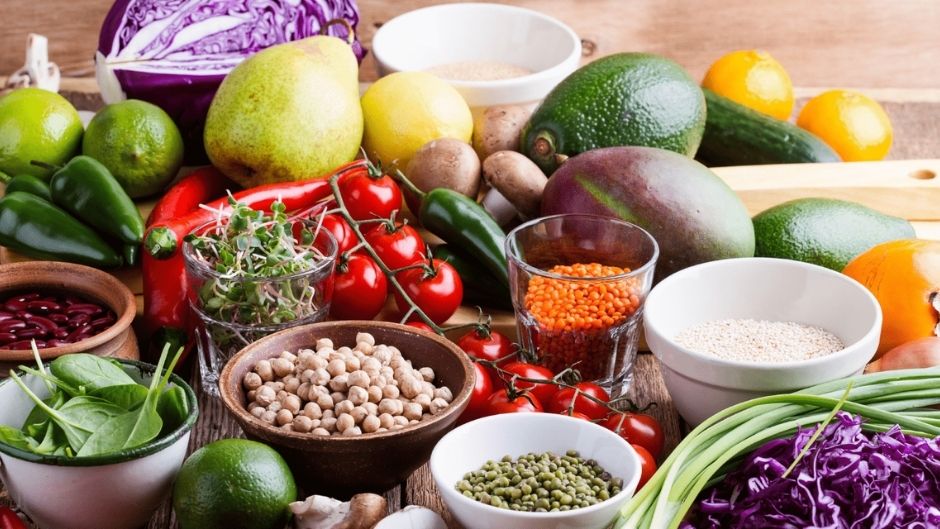Author Name: StartRight
Whole food, plant-based diets, some believe, is the latest fad in trend. However, it’s not a fad or trend, rather it’s a traditional approach to health and wellness, accomplished through eating plant-based food. It is now remerging, as people have started accepting it, after being aware of the endless benefits it offers. Though many diet enthusiasts start following the plant-based diet, many fail due to inadequate knowledge. They may over-eat some plant-based foods, while alienating the other foods due to lack of awareness. Like any other diet, whole-food, plant-based diet also should be balanced I terms of nutrients that the body needs.
A balanced diet provides the human body with enough nutrients, vitamins, minerals and other essential elements to function normally. Most of the essential elements can be obtained from plant sources like fruits, vegetables, whole grains, legumes, and, nuts. Due to less saturated fats in the plant-based diets, they become ideal food for people whose medical condition require them to limit certain nutrients. Here arises a question of how your current diets can be replaced with the whole food, plant-based diet. Although it is not easy, it is possible. This article clarifies how plant-based diet is a balanced diet and how it can replace other diets.
Macronutrients:
Macronutrients include carbohydrates, proteins and fats, and are major contributors to our daily diet. There are enough macronutrients available from the plant-based diets.
• Carbs from plants
Carbohydrates in the food are essential for the body to generate enough energy for optimal functioning. Carbohydrates can be obtained from several processed foods too, but they mostly empty calories, without any nutrition. Long-term intake of these processed foods may increase the risk of certain health condition. Therefore, intake of carbohydrates from naturally occurring sources like wholesome vegetables, fruits, whole grains may help reduce the health-related illnesses caused due to processed foods.
• Proteins from plants, Really!!
The general misconception around the globe is that ‘plant diets are very low in proteins, so prefer meat’, however, this is wrong. The plant-based diets are rich enough in protein to suffice the daily recommendation of proteins for the body. The plant foods rich in proteins include legumes, whole grains, lentils, seeds and soy.
• Fats
Fats are categorised into monounsaturated fatty acids, polyunsaturated fatty acids, cholesterol and trans fatty acids. Most of the processed foods contain these fatty acids and are the reasons to cause chronic diseases such as heart diseases, diabetes etc. Plant-based diets are usually moderate in fats, which makes it a healthful diet.1
Micronutrients:
Foods mainly constitute macronutrients i.e. carbohydrates, fats and proteins and a little percentage of micronutrients, namely vitamins and minerals. These are called micronutrients because they are required by the body in a very small amount. Micronutrients, although required in small quantity, play important role in all vital functions in the body. All the micronutrients apart from vitamin-D and vitamin-B12 are readily available in plant-based diets. Vitamin B12 is synthesised by bacteria and fungi, so it is not found in plants, whereas, Vitamin-D is a naturally occurring vitamin from the sunlight. Other micronutrients found in the plants include calcium, iron, zinc, iodine and selenium.
• Calcium:
Calcium is a mineral present abundant in the human body. Calcium is required for the bones to stay healthy and rigid. A diet with less calcium content may result in rickets or knock-knees. To minimise the diseases related to calcium deficiencies, frequent consumption of calcium is necessary. The plant foods rich in calcium include leafy vegetables such as broccoli, kale, turnips etc.2
• Iron
Although Iron is abundant in the world, the diseases due to iron deficiencies are hugely common. The human body requires iron for blood production and most of the iron is found in red blood cells of the blood. Vegetarians tend to be iron-deficient, but some plant foods are rich enough to provide iron to the body. The iron-rich plant foods include leafy vegetables and legumes.2, 3
• Zinc
Zinc is one of the vital micronutrients required for the human body. Zinc helps in wound healing and immune functions. Usually, zinc deficiency is hard to recognise as it doesn’t show up in the haematology reports. The problems due to zinc deficiencies include delayed wound healing, hair loss, taste impairments and eye or skin lesions etc. Therefore, sufficient amounts of zinc are necessary for the body. Plant-based diets are rich in zinc to keep away any deficiency disorders. Zinc-rich plant foods may include cashews, legumes, other nuts and seeds.2
• The other micronutrients like selenium, iodine and Vitamin-K can also be obtained from the leafy and green vegetables.
Just eating a whole-food plant-based diet is not enough; balancing the nutrients in the diet is the key to good health. Rather than gorging on one type of food, one should try to include variety of foods. Fill your plate with different kinds of foods, in a variety of colors and textures, to ensure that you get all the nutrients body needs. A balanced plant-based diet should contain foods that provide all macronutrients and micronutrients, and not just one or two nutrients. Eating mashed potatoes may not be healthy in itself, but pairing it with legumes, herbs, and greens may do wonders.
References:
- Hever, J. (2016). Plant-Based Diets: A Physician’s Guide. The Permanente Journal, 20(3), 93–101.
http://doi.org/10.7812/TPP/15-082 - Hever, J., & Cronise, R. J. (2017). Plant-based nutrition for healthcare professionals: implementing diet as a primary modality in the prevention and treatment of chronic disease. Journal of Geriatric Cardiology : JGC, 14(5), 355–368.
http://doi.org/10.11909/j.issn.1671-5411.2017.05.012 - Sanders, T. A. B., (1999). Meat or wheat for the next millennium? A Debate Pro Veg The nutritional adequacy of plant-based diets. Proceedings of the Nutrition Society, 58, 265-269.








































